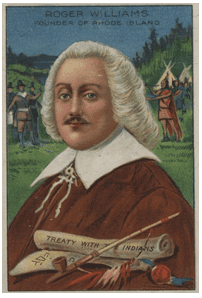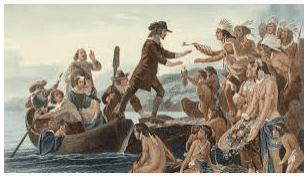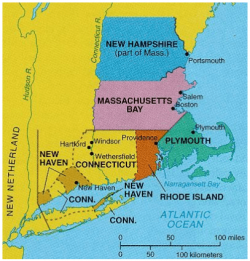Hawk1981
VIP Member
- Apr 1, 2020
- 209
- 269
- 73
Roger Williams was an ordained minister who came to the Massachusetts Bay Colony in 1631 from England. His original intention was to be a missionary to the American native peoples. Williams had a natural charisma. He liked people and established friendships with the natives. Having a gift for languages he learned the prevalent language in the area, Algonquilian. Through his friendships Williams also learned that the primary discourse between settlers and Native Americans was not the teaching of Christianity, but the dispossession of native lands and hunting preserves, usually by robbery.
Sources:
Conley, Patrick T. Rhode Island’s Founders: From Settlement to Statehood, The History Press, 2010.
Roger Williams Biography
Sources:
Conley, Patrick T. Rhode Island’s Founders: From Settlement to Statehood, The History Press, 2010.
Roger Williams Biography
Attachments
Last edited by a moderator:




